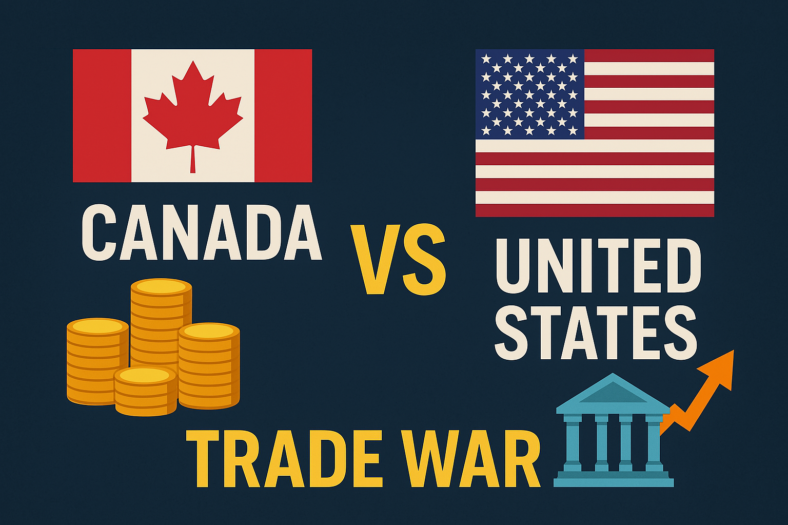In Canada, a diverse array of retail giants and niche brands alike offer their own branded credit cards, enticing customers with exclusive benefits, discounts, and rewards. These store credit cards often come with features tailored to enhance the shopping experience, whether it’s through cashback incentives, loyalty points, or exclusive access to sales and promotions.
In this comprehensive guide, we delve into the realm of store credit cards in Canada, uncovering the best options available to savvy shoppers. From household names in retail to specialty boutiques, each store credit card brings its own set of advantages and considerations for potential cardholders.
Join us as we navigate through the intricacies of store credit cards, exploring their features, rewards programs, fees, and eligibility requirements. Whether you’re a frequent shopper looking to maximize your savings or a loyal patron seeking exclusive perks, this guide is your roadmap to discovering the best store credit cards that Canada has to offer.
Best Store Credit Cards - Our Top Picks
| Compare | Ratestead Rating | Annual Fee | Annual Rewards | Welcome Bonus | Learn More |
|---|
| APPLY NOW | /10 |
How do store credit cards work?
Store credit cards, also known as retail credit cards, function similarly to traditional credit cards but are typically branded and issued by specific retailers or store chains. Here’s a detailed breakdown of how these cards work:
Application Process: Much like applying for a regular credit card, applying for a store credit card involves submitting personal information such as name, address, income, and employment details. The issuer will also perform a credit check to assess your creditworthiness. However, store credit cards may have less stringent approval criteria compared to major credit cards.
Approval and Credit Limit: Upon approval, you’ll be assigned a credit limit, which represents the maximum amount you’re allowed to borrow using the card. The credit limit is determined based on factors such as your credit score, income, and existing debt obligations.
Card Activation: Once you receive your store credit card in the mail, you’ll typically need to activate it before you can use it. This often involves calling a toll-free number, visiting the issuer’s website, or activating it in-store.
Making Purchases: With an activated card, you can start making purchases at the specific retailer or affiliated stores where the card is accepted. Store credit cards may offer incentives such as discounts or rewards for purchases made at the issuing retailer.
Statement Cycle: Like traditional credit cards, store credit cards operate on a monthly billing cycle. During this period, you can make purchases up to your credit limit. At the end of the cycle, the issuer generates a statement detailing all transactions made during that time.
Minimum Payment: The statement will include a minimum payment due, which is the smallest amount you’re required to pay by the due date to keep your account in good standing. However, paying only the minimum will result in interest charges on the remaining balance.
Interest and APR: Similar to traditional credit cards, store credit cards may accrue interest charges on outstanding balances beyond the grace period. The interest rate, expressed as an Annual Percentage Rate (APR), can vary depending on the card issuer and your creditworthiness.
Special Financing Offers: Some store credit cards may offer special financing options, such as promotional interest rates or deferred interest plans, for large purchases. These offers typically have specific terms and conditions that cardholders should carefully review.
Exclusive Benefits and Rewards: One of the primary attractions of store credit cards is the exclusive benefits and rewards they offer. These may include discounts on purchases, cashback rewards, loyalty points, free shipping, extended return policies, access to exclusive sales and events, and other perks designed to incentivize customer loyalty.
Brand Affiliation: Store credit cards often come with branding and marketing tie-ins with the issuing retailer, allowing cardholders to showcase their affinity for the brand and potentially unlock additional benefits or privileges.
Understanding how store credit cards work empowers consumers to make informed decisions about whether these cards align with their spending habits, financial goals, and shopping preferences. While they can offer enticing benefits and rewards, it’s essential to weigh the advantages against any potential fees, interest charges, and limitations associated with these cards.
Pros and cons of store credit cards
Store credit cards come with a unique set of advantages and disadvantages, which can vary depending on individual financial habits, shopping preferences, and lifestyle factors. Here’s a detailed exploration of the pros and cons:
Pros:
Exclusive Discounts and Rewards: Store credit cards often offer exclusive discounts, cashback rewards, loyalty points, and other perks for purchases made at the issuing retailer or affiliated stores. These rewards can translate into significant savings for frequent shoppers.
Special Financing Offers: Some store credit cards provide special financing options, such as promotional interest rates or deferred interest plans, for large purchases. These offers can be advantageous for consumers looking to finance purchases over time without accruing high interest charges.
Build Credit History: Responsible use of a store credit card can help individuals establish or improve their credit history. Making timely payments and keeping balances low relative to credit limits demonstrates creditworthiness and can positively impact credit scores over time.
Brand Affiliation: Store credit cards often come with branding tie-ins and marketing partnerships with the issuing retailer, allowing cardholders to showcase their loyalty to the brand and potentially unlock additional benefits or privileges.
Access to Exclusive Events and Sales: Cardholders may receive invitations to exclusive sales events, early access to promotions, and other special offers not available to non-cardholders. This can enhance the overall shopping experience and provide opportunities to snag deals.
Convenience: Having a store credit card can streamline the checkout process, especially for frequent shoppers who regularly patronize the issuing retailer or affiliated stores. Cardholders may also benefit from features like online account management and mobile payment options.
Cons:
High Interest Rates: Store credit cards often come with higher interest rates compared to traditional credit cards. Carrying a balance from month to month can result in significant interest charges, eroding any savings or rewards earned from purchases.
Limited Acceptance: Unlike major credit card networks like Visa or Mastercard, store credit cards can typically only be used at the issuing retailer or affiliated stores. This limited acceptance may restrict cardholders’ purchasing flexibility, especially when shopping outside the store’s ecosystem.
Potential Fees: Store credit cards may come with various fees, including annual fees, late payment fees, and foreign transaction fees. These fees can eat into any rewards or savings earned from using the card, especially if cardholders are not diligent about managing their accounts.
Temptation to Overspend: The allure of exclusive discounts and rewards may tempt some consumers to overspend or make impulse purchases, leading to accumulating debt that can be difficult to repay. It’s essential for cardholders to exercise discipline and stick to a budget to avoid financial pitfalls.
Impact on Credit Score: Opening a new store credit card can temporarily lower your credit score due to the hard inquiry from the application process and the reduction in average account age. Additionally, carrying high balances relative to credit limits can negatively affect credit utilization and, consequently, credit scores.
Potential for Retailer Bankruptcy: If the issuing retailer goes bankrupt or undergoes financial difficulties, it could impact the store credit card program, potentially leading to changes in terms, rewards, or even the closure of accounts.
Understanding the pros and cons of store credit cards empowers consumers to make informed decisions about whether these cards align with their financial goals, spending habits, and lifestyle preferences. It’s essential to carefully evaluate the terms, fees, rewards, and potential risks associated with each card before applying.
What types of store credit cards are available in Canada?
Store credit cards in Canada span a diverse range of retail categories, catering to various consumer preferences and shopping habits. Here’s an overview of the types of store credit cards available in Canada:
Department Store Credit Cards: Department store credit cards are affiliated with major retail chains offering a wide range of products across multiple categories. These cards typically provide rewards, discounts, and exclusive perks for purchases made at the respective department stores. Examples include:
- Hudson’s Bay Credit Card
- Sears Credit Card (if available)
- Winners Circle Rewards Mastercard
Grocery Store Credit Cards: Grocery store credit cards are associated with supermarkets and grocery chains, offering rewards and benefits tailored to food and household essentials purchases. These cards may also provide additional perks such as fuel discounts or loyalty points for groceries. Examples include:
- PC Financial Mastercard
- President’s Choice Financial World Elite Mastercard
- Sobeys AIR MILES Mastercard
Home Improvement Store Credit Cards: Home improvement store credit cards are linked to hardware and home improvement retailers, providing rewards and discounts for purchases related to home improvement projects, renovations, and DIY supplies. Examples include:
- The Home Depot Consumer Credit Card
- RONA Advantage Credit Card
- Lowe’s Consumer Credit Card
Fashion and Apparel Store Credit Cards: Fashion and apparel store credit cards are affiliated with clothing, footwear, and accessories retailers, offering rewards, discounts, and exclusive benefits for fashion-forward shoppers. These cards may also provide perks such as early access to sales or VIP events. Examples include:
- H&M Loyalty Program
- Old Navy Credit Card (if available)
- RW&CO. Style Rewards Program
Electronics and Technology Store Credit Cards: Electronics and technology store credit cards are associated with retailers specializing in consumer electronics, gadgets, and tech accessories. These cards may offer rewards, financing options, or exclusive discounts for tech enthusiasts. Examples include:
- Best Buy Credit Card
- The Source Card (if available)
- Apple Card (if available)
Specialty Retailer Credit Cards: Specialty retailer credit cards are linked to niche or specialty retailers focusing on specific product categories or demographics. These cards may offer rewards, discounts, or perks tailored to the retailer’s unique offerings. Examples include:
- Sephora Credit Card
- Indigo Plum Rewards Program
- Canadian Tire Triangle Mastercard
Gas Station Credit Cards: Gas station credit cards are affiliated with fuel retailers, providing rewards, discounts, or cashback incentives for fuel purchases. These cards may also offer additional benefits such as discounts on car maintenance services or convenience store purchases. Examples include:
- Esso Extra Points Card
- Petro-Points Rewards Card
- Shell AIR MILES Mastercard
These are just a few examples of the types of store credit cards available in Canada. Each card comes with its own set of rewards, benefits, fees, and terms, so it’s essential for consumers to carefully evaluate their options based on their spending habits, preferences, and financial goals.
How to find and choose the best store credit cards in Canada
Finding and choosing the best store credit card in Canada requires careful consideration of various factors, including your spending habits, lifestyle preferences, financial goals, and the specific features and benefits offered by each card. Here’s a detailed guide to help you navigate the process:
Evaluate Your Spending Habits: Start by assessing your typical spending patterns and identifying the categories where you tend to spend the most. Consider whether you frequently shop at specific retailers or if you prefer to shop across a variety of stores. This will help you narrow down your options to store credit cards that align with your spending habits.
Research Available Options: Research the store credit cards available in Canada across different retail categories. Explore the rewards, benefits, fees, interest rates, and terms associated with each card. Pay attention to factors such as rewards earning rates, redemption options, sign-up bonuses, and any exclusive perks offered to cardholders.
Compare Rewards Programs: Compare the rewards programs offered by various store credit cards to determine which one offers the most value for your spending. Look for cards that provide rewards or cashback on purchases you regularly make, whether it’s groceries, clothing, electronics, or other necessities.
Consider Sign-Up Bonuses: Many store credit cards offer sign-up bonuses or introductory offers to new cardholders, such as bonus points, cashback rewards, or statement credits. Take these incentives into account when evaluating the overall value proposition of each card.
Assess Annual Fees and Interest Rates: Evaluate the annual fees, if any, associated with each store credit card, as well as the ongoing interest rates for purchases and balance transfers. Determine whether the potential rewards and benefits outweigh the cost of ownership, especially if the card has an annual fee.
Review Additional Benefits and Perks: Look beyond rewards and discounts and consider any additional benefits or perks offered by each store credit card. This may include purchase protection, extended warranties, travel insurance, roadside assistance, or access to exclusive events or sales.
Check Redemption Options: Review the redemption options available for the rewards earned with each store credit card. Determine whether you prefer cashback rewards, statement credits, gift cards, merchandise, travel rewards, or other redemption options offered by the card issuer.
Read Customer Reviews and Ratings: Take the time to read customer reviews and ratings for the store credit cards you’re considering. Pay attention to feedback on customer service, rewards redemption experiences, ease of use, and overall satisfaction with the card.
Consider Your Credit Score and Eligibility: Keep in mind that your credit score will influence your eligibility for certain store credit cards and the terms you’re offered, including credit limits and interest rates. Check your credit score and choose cards that align with your credit profile.
Apply for the Card: Once you’ve thoroughly researched and compared your options, select the store credit card that best fits your needs and preferences. Complete the application process online or in-store, providing accurate information and supporting documentation as required.
By following these steps and carefully weighing the factors outlined above, you can find and choose the best store credit card in Canada that aligns with your financial goals and enhances your shopping experience. Remember to use your card responsibly, pay your bills on time, and maximize the rewards and benefits offered to make the most of your credit card ownership.
Common interest rates, fees and costs for store credit cards in Canada
Interest rates, fees, and costs associated with store credit cards in Canada can vary widely depending on the card issuer, the retailer, and the specific terms and conditions of each card. However, there are some common elements that consumers should be aware of when considering store credit cards:
Annual Percentage Rate (APR):
- Interest rates on store credit cards in Canada typically range from around 19% to 29% or higher for purchases. However, promotional rates may be offered for a limited time period, such as 0% APR for the first few months.
- The APR for cash advances and balance transfers is often higher than the rate for purchases, sometimes exceeding 20% to 30% or more.
- Some store credit cards offer variable APRs based on the prime rate, which can fluctuate over time.
Annual Fees:
- Many store credit cards in Canada charge an annual fee for card ownership, which can range from $0 to $100 or more, depending on the card’s features and benefits.
- Premium store credit cards with enhanced rewards, perks, and benefits tend to have higher annual fees, while basic cards may have no annual fee or a lower fee.
Foreign Transaction Fees:
- Store credit cards may charge foreign transaction fees, typically ranging from 2% to 3% of the transaction amount, for purchases made in foreign currencies or outside of Canada.
- These fees can add up quickly for travelers or online shoppers who frequently make purchases from international merchants.
Late Payment Fees:
- Late payment fees are charged when cardholders fail to make at least the minimum payment by the due date specified on the billing statement.
- Late payment fees for store credit cards in Canada can vary but are typically around $25 to $40 for the first offense and may increase for subsequent late payments.
Overlimit Fees:
- Overlimit fees may be assessed when cardholders exceed their credit limit by making purchases that push their account balance beyond the approved credit line.
- These fees are less common than they used to be, as card issuers are now required to obtain cardholder consent before allowing transactions that exceed the credit limit.
Balance Transfer Fees:
- If a store credit card offers balance transfer promotions, a balance transfer fee may apply, typically ranging from 1% to 5% of the transferred amount.
- Some cards may waive the balance transfer fee as part of a promotional offer, especially for new cardholders.
Cash Advance Fees:
- Cash advance fees are charged when cardholders use their store credit card to withdraw cash from an ATM or obtain cash equivalent transactions, such as cashback at a point of sale.
- These fees are typically a percentage of the cash advance amount, often around 2% to 5%, with a minimum fee of $5 to $10 per transaction.
Returned Payment Fees:
- Returned payment fees may be assessed if a payment made by check or electronic transfer is returned unpaid due to insufficient funds or other reasons.
- These fees are usually similar to late payment fees, ranging from $25 to $40 for the first offense.
Additional Costs:
- Other potential costs associated with store credit cards may include fees for optional services such as expedited card replacement, paper statements, credit limit increases, or account maintenance.
It’s essential for consumers to carefully review the terms and conditions of store credit cards, including the APR, fees, and costs, before applying. Understanding these factors can help cardholders make informed decisions and manage their credit responsibly to minimize unnecessary expenses.
Alternatives to store credit cards
While store credit cards offer specific benefits and rewards tailored to particular retailers, they may not be the best option for everyone. Fortunately, there are several alternatives to consider for those seeking flexible payment options and rewards without committing to a store-specific card. Here are some alternatives to store credit cards:
Traditional Credit Cards: Traditional credit cards issued by major banks and financial institutions offer versatility and broader acceptance compared to store credit cards. They can be used at a wide range of merchants worldwide, providing flexibility in spending and earning rewards. Many traditional credit cards also offer robust rewards programs, including cashback, travel rewards, and points-based systems that can be redeemed for various benefits.
Cashback Credit Cards: Cashback credit cards provide a straightforward way to earn cash rewards on everyday purchases, regardless of where they’re made. These cards typically offer a flat percentage of cashback on all purchases or higher cashback rates in specific spending categories, such as groceries, gas, or dining. Cashback rewards can be redeemed as statement credits, direct deposits, or checks, providing flexibility and tangible savings.
Travel Rewards Credit Cards: Travel rewards credit cards are ideal for frequent travelers or those looking to maximize rewards for travel-related expenses. These cards often earn points or miles on purchases, which can be redeemed for flights, hotel stays, car rentals, and other travel perks. Travel rewards credit cards may also offer travel insurance, airport lounge access, and other travel-related benefits.
No-Fee Credit Cards: No-fee credit cards, as the name suggests, do not charge an annual fee for card ownership. These cards offer a cost-effective way to access credit without incurring ongoing fees, making them suitable for budget-conscious consumers or those who prefer to avoid annual fees altogether. While they may have fewer perks and benefits compared to premium cards, they can still provide essential features such as rewards and purchase protections.
Secured Credit Cards: Secured credit cards are designed for individuals with limited credit history or poor credit scores. These cards require a security deposit, which acts as collateral against the credit limit. Secured credit cards can help individuals build or rebuild credit over time by demonstrating responsible credit usage and payment behavior. Once the cardholder establishes a positive credit history, they may qualify for traditional credit cards with higher credit limits and better terms.
Debit Cards: Debit cards draw funds directly from a linked checking or savings account, allowing cardholders to make purchases without incurring debt or interest charges. While debit cards do not offer credit-building opportunities or rewards like credit cards, they provide a convenient and secure way to access funds for everyday transactions.
Mobile Payment Apps: Mobile payment apps such as Apple Pay, Google Pay, and Samsung Pay enable users to make contactless payments using their smartphones or other mobile devices. These apps securely store payment information and can be used at participating merchants with NFC-enabled terminals. Some mobile payment apps also offer rewards programs or cashback incentives for using the service.
Prepaid Cards: Prepaid cards allow users to load funds onto a card in advance and use them for purchases until the balance is depleted. While prepaid cards do not extend credit or offer rewards, they can be a useful tool for budgeting and managing spending, especially for individuals who prefer to avoid traditional credit cards or do not qualify for them.
Each of these alternatives to store credit cards offers unique features and benefits, allowing consumers to choose the option that best fits their financial needs, preferences, and goals. Whether you prioritize rewards, flexibility, affordability, or credit-building opportunities, there’s a suitable alternative available to help you manage your finances effectively.
FAQs about the best store credit cards in Canada
Store credit cards are branded credit cards issued by specific retailers or store chains, offering rewards, discounts, and perks for purchases made at the respective stores. They typically have limited acceptance and may offer specialized benefits tailored to the retailer’s offerings.
Store credit cards often provide exclusive discounts, rewards, and perks for purchases made at the issuing retailer or affiliated stores. Cardholders may also enjoy special financing offers, access to exclusive events or sales, and other loyalty incentives.
When choosing a store credit card, consider factors such as rewards programs, annual fees, interest rates, redemption options, and additional benefits. Evaluate your spending habits, preferences, and financial goals to select a card that aligns with your needs.
Store credit cards in Canada may offer various rewards, including cashback, loyalty points, discounts on purchases, free shipping, extended return policies, and access to exclusive sales or events. The specific rewards vary depending on the retailer and card features.
Whether a store credit card is worth it depends on your spending habits, the rewards and benefits offered, and the associated costs such as annual fees and interest rates. If you frequently shop at the issuing retailer and can take advantage of the rewards and perks, a store credit card may be worthwhile.
Yes, responsible use of a store credit card can help build credit in Canada by demonstrating a history of on-time payments and responsible credit management. Making timely payments and keeping balances low relative to credit limits can positively impact your credit score over time.
Drawbacks of store credit cards may include higher interest rates compared to traditional credit cards, limited acceptance outside of the issuing retailer or affiliated stores, potential annual fees, and the temptation to overspend to earn rewards.
Yes, store credit cards can typically be used for online shopping at the issuing retailer’s website or affiliated online stores. Some store credit cards may also be accepted at other online merchants, depending on the card network (e.g., Visa, Mastercard) and acceptance policies.
To apply for a store credit card in Canada, visit the retailer’s website or store location, or apply online through the card issuer’s website. You’ll need to provide personal information, such as your name, address, income, and employment details, and consent to a credit check.
Before applying for a store credit card, carefully review the card’s terms and conditions, including interest rates, fees, rewards programs, and redemption options. Consider whether the benefits outweigh the costs and whether the card aligns with your spending habits and financial goals.
Conclusion: Navigating the World of Store Credit Cards in Canada
Store credit cards in Canada offer a unique blend of rewards, discounts, and perks tailored to the specific needs and preferences of shoppers. From department stores to grocery chains, electronics retailers to fashion boutiques, these cards provide an opportunity for consumers to earn valuable rewards and enhance their shopping experience while demonstrating loyalty to their favorite brands.
However, choosing the right store credit card requires careful consideration of various factors, including rewards programs, fees, interest rates, and redemption options. While store credit cards can provide significant benefits for frequent shoppers, they may not be the best option for everyone. Consumers should weigh the pros and cons of each card and assess their spending habits, financial goals, and creditworthiness before applying.
Additionally, it’s essential for cardholders to use their store credit cards responsibly, making timely payments, keeping balances low, and avoiding unnecessary fees and interest charges. By doing so, they can maximize the benefits of their cards while building positive credit history and financial wellness.
In the dynamic landscape of Canadian retail, store credit cards continue to evolve, offering new features, rewards, and innovations to meet the changing needs of consumers. Whether you’re looking to earn cashback on groceries, score discounts on fashion, or unlock exclusive perks at your favorite stores, there’s a store credit card in Canada waiting to enhance your shopping journey.
As you explore the world of store credit cards, remember to stay informed, compare your options, and choose the card that best aligns with your lifestyle and financial objectives. With the right approach, store credit cards can be valuable tools for saving money, earning rewards, and enjoying a seamless shopping experience in Canada’s diverse retail landscape.




















